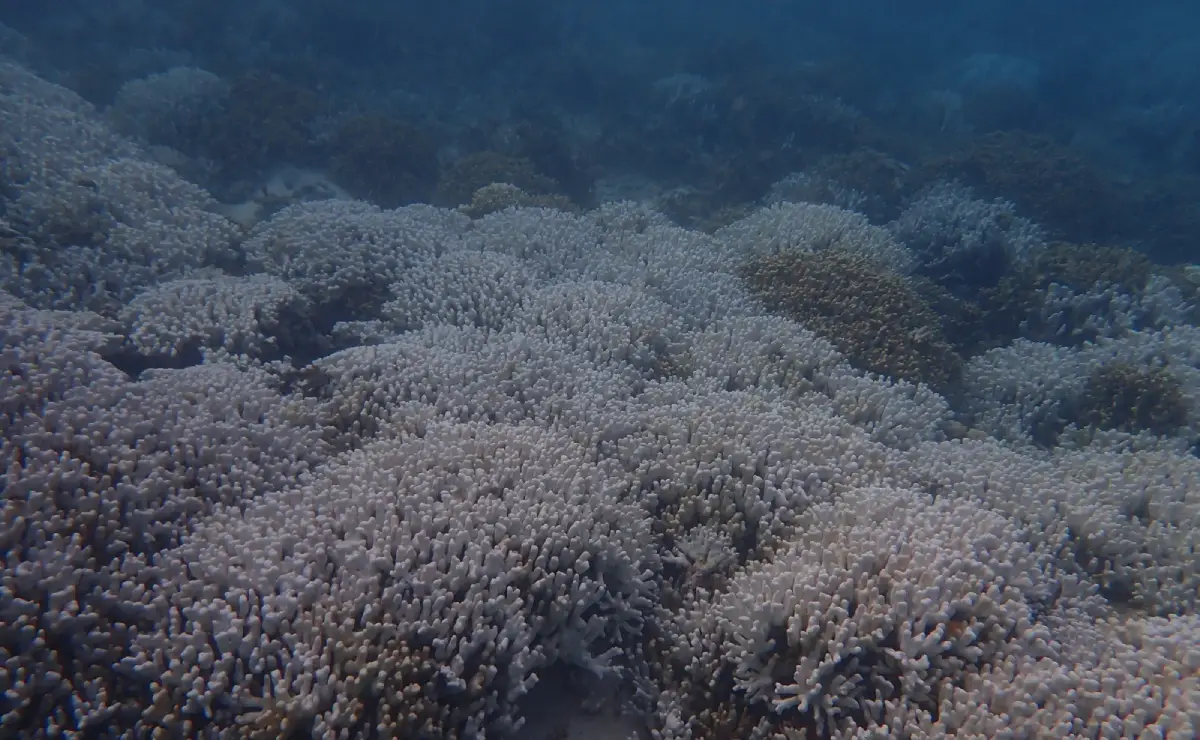
Intense Coral Bleaching In Lakshadweep
KOCHI, (IANS) – Researchers at the ICAR-Central Marine Fisheries Research Institute have recorded a widespread bleaching event impacting the coral reefs in the Lakshadweep Sea owing to marine heatwaves.
A survey from various Lakshadweep islands shows that a considerable percentage of the hard coral species have undergone severe bleaching, primarily due to a prolonged period of marine heatwaves affecting the region since late October 2023.
Marine heatwaves are rare extreme weather events that involve prolonged periods of abnormally high ocean temperatures.
These temperatures often exceed the 90th percentile of typical regional ocean temperatures based on historical data.
In Lakshadweep, the Degree Heating Week indicator, which measures accumulated heat stress, has surged above 4 degrees C-weeks.
According to the National Oceanic and Atmospheric Administration, this level of DHW poses a substantial risk of coral bleaching, threatening the region’s diverse marine ecosystems.
Such heat stress levels signify a severe threat to coral health, leading to extensive bleaching where corals lose the symbiotic algae (zooxanthellae), compromising their survival by depriving them of essential nutrients.
If the DHW continues to rise, reaching beyond 12 degrees C-weeks, it could precipitate an unprecedented biodiversity crisis due to multispecies mortality.
The primary causes of these marine heat waves are excessive heat atmospheric transfer coupled with shifts in ocean currents, leading to unusually high water temperatures.
Viewing that the health of marine ecosystems is integral to the livelihoods of coastal communities, influencing tourism and fisheries sectors, the ongoing marine heatwaves are likely to cause significant economic losses by disrupting their vital ecosystem services.




